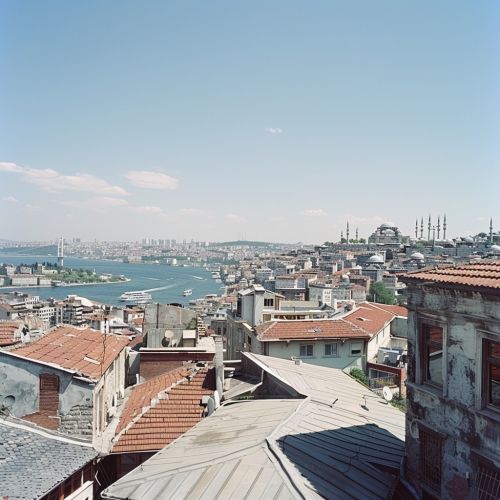Istanbul
Geography
Istanbul, historically known as Byzantium and Constantinople, is the largest city in Turkey and the country's economic, cultural, and historic center. Located on both the European (Thrace) and Asian (Anatolia) sides of the Bosphorus, Istanbul bridges Asia and Europe both physically and culturally, making it unique among the world's cities.


History
Istanbul's history dates back to around 660 BCE when it was founded by King Byzas of Megara as Byzantium. It was later renamed Constantinople in honor of Constantine the Great, who made it the new eastern capital of the Roman Empire in 330 CE. The city remained the capital of the Byzantine Empire until it was conquered by the Ottomans in 1453. The Ottomans renamed the city Istanbul and it served as their imperial capital until 1922.
Architecture
Istanbul's architecture is a reflection of its rich history. The city is filled with architectural marvels from different periods, including the Byzantine Hagia Sophia, the Ottoman-era Topkapi Palace, and the iconic Blue Mosque. The city's skyline is a mix of minarets, domes, and modern skyscrapers.
Culture
Istanbul's culture is as diverse as its history. The city is a melting pot of different cultures and traditions, influenced by the many civilizations that have called it home. From its cuisine, music, and arts, to its festivals and traditions, Istanbul offers a unique blend of the East and the West.
Economy
As Turkey's largest city, Istanbul is the country's economic powerhouse. It is a major global city with a diverse economy based on sectors such as finance, commerce, media, entertainment, arts, fashion, and tourism. The city is home to many of Turkey's largest businesses and the Istanbul Stock Exchange.
Education
Istanbul is a major center for education in Turkey, with numerous universities, colleges, and schools. The city's universities, such as Bogazici University, Istanbul Technical University, and Koc University, are among the top educational institutions in the country.
Transportation
Istanbul has a comprehensive transportation network that includes trams, metros, buses, ferries, and the two international airports, Istanbul Ataturk Airport and Sabiha Gokcen International Airport. The city also has a major seaport and is a significant hub for maritime transport.
